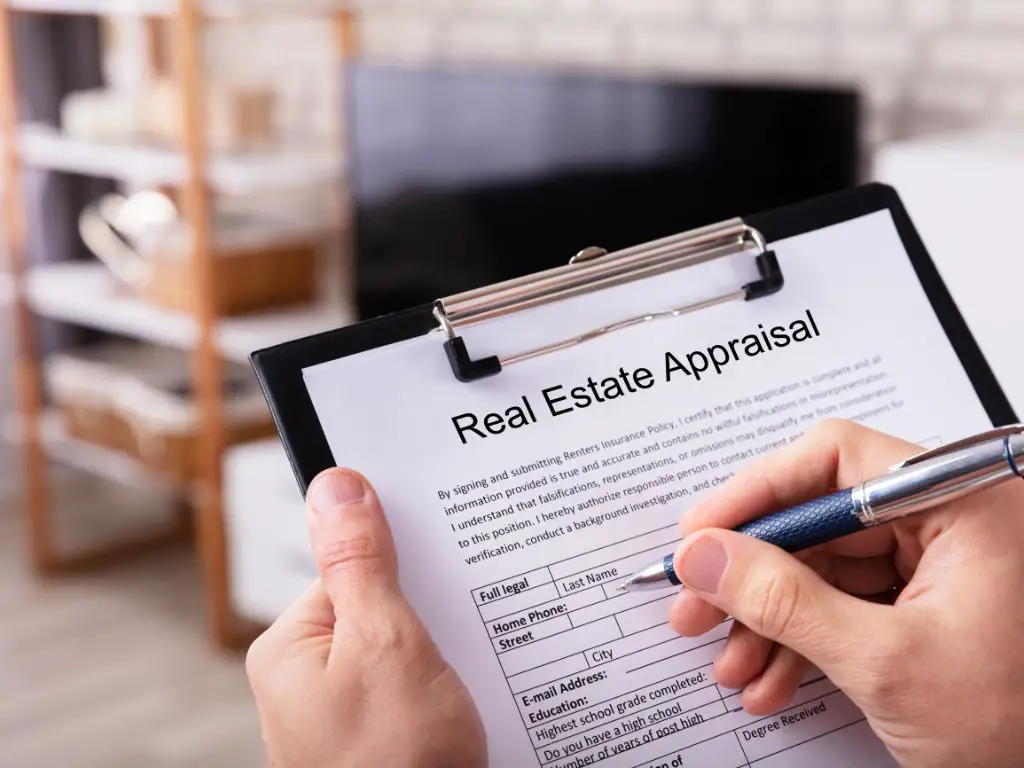Physical Address
304 North Cardinal St.
Dorchester Center, MA 02124
Physical Address
304 North Cardinal St.
Dorchester Center, MA 02124
A home appraisal is an assessment of a property’s market value conducted by a licensed appraiser. Appraisals are a standard part of the mortgage lending process, allowing lenders to confirm that a home is worth enough to secure the loan.

Banks and mortgage lenders rely on appraisals to ensure loans are secured against eligible collateral. An appraisal provides an independent, professional opinion on what a property would sell for under current market conditions. This protects lenders from issuing loans greater than what the property is worth.
According to the Consumer Financial Protection Bureau, appraisals help prevent predatory lending and inflated home prices. They are a key risk management tool lenders use to ensure fair lending practices.
For homebuyers, appraisals also offer reassurance that they are paying a fair price supported by market data. This prevents buyers from overpaying and protects their interests in the transaction.
The typical appraisal process involves four main steps:
Lenders order appraisals through appraisal management companies (AMCs). The homebuyer usually pays for the appraisal fee, which averages $365 nationally.
Appraisers are assigned to evaluate the property based on experience, locale, and availability. Turnaround times range from 1-3 days on average.
The appraiser will schedule a visit to visually inspect the interior and exterior of the home. They will measure the home, take photos, and document their observations.
The inspection also verifies that the home dimensions match publicly recorded documents and that there are no discrepancies.
Appraisers will research recent sales of at least three comparable homes in the neighborhood with similar features. This helps determine the subject property’s value relative to other sales.
They will analyze closed sales going back 6-12 months for these “comps” and make adjustments up or down based on differences compared to the subject home.
Finally, the appraiser will synthesize their research, inspections, and analysis into a completed appraisal report. This will render an opinion on the market value of the home.
The report goes to the lender, who will approve the loan if the appraised value meets or exceeds the amount borrowed.
There are three levels of certification for real estate appraisers:
All appraisers must be state-licensed or certified with qualifications ranging from associate degrees to master’s degrees in related subjects like business or finance. They must have hundreds of hours of training and pass national exams.
When inspecting a home, appraisers will look at:
They will also verify story details like bedroom/bathroom counts.
Many elements influence a home’s valuation during an appraisal:
Similar homes in desirable areas tend to appraise for more. Factors like school districts, crime rates, commute distance, and amenities impact location values.
Larger homes with open floor plans and favorable layouts typically appraise for higher amounts than smaller, chopped up homes.
Homes in excellent, move-in ready condition will appraise for more versus those needing heavy repairs or renovations.
Upgraded kitchens, bathrooms, flooring, and landscaping can boost appraisal value. Outdated homes may appraise lower.
When housing inventory is low and demand high, appraised values often trend higher in competitive markets.
Sellers can take proactive steps to maximize their home’s appraised value:
Proper preparation highlights the home’s best assets for the highest possible valuation.
There are a few potential scenarios if a home appraises lower than the purchase price:
According to data from Freddie Mac, the median appraisal amount is 3.5% lower than the contract price nationally. About 15% of appraisals come under contract price.
Homeowners who disagree with a low appraisal do have options:
A successful dispute can overturn the original valuation in some cases. But appraisals are subjective, and appeals don’t always result in changes.
To get the green light on financing approval:
With proper preparation, most homeowners can successfully navigate the appraisal process without major hurdles.
Homeowners can expect to pay an average appraisal fee of $365, although costs can range from $275 on the low end to $500 or more for larger homes.
The mortgage borrower typically pays for the appraisal fee, either directly upfront or via a credit from their lender at closing. VA loans include the fee in closing costs. FHA loans require the fee paid upfront.
If a second appraisal is needed, the borrower may have to pay for this reappraisal out of pocket.
Appraisals are worth the cost as they help ensure home loans are properly secured and valued fairly. For homebuyers, a smooth appraisal process minimizes stress and delays in financing home purchases. Being an informed seller, buyer, or borrower makes appraisals a seamless step versus an obstacle.